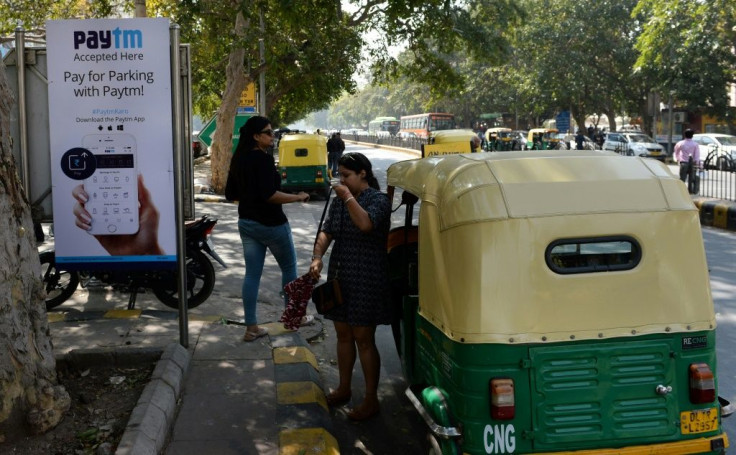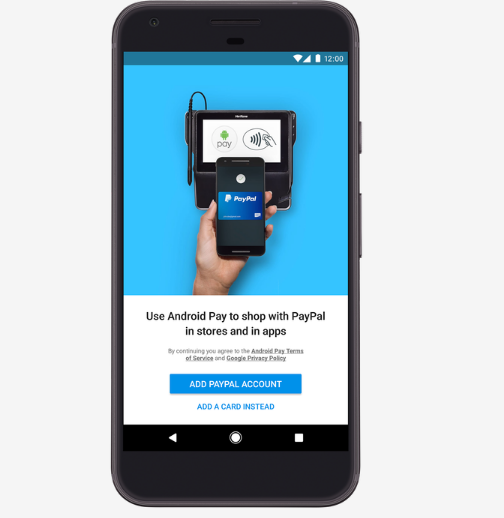India Links Showpiece Instant Payments System UPI To Singapore, Making Cross-Border Remittances Easier
India's digital payments revolution notched up another win earlier this week as the country's UPI, or United Payments Interface, was linked to Singapore's PayNow, adding another nation to the digital network and making sending cash home a breeze for the thousands of Indians working in the city-state.
The cross-border integration between UPI and PayNow was completed Tuesday, allowing citizens in both countries to make faster digital transfers, and at a much lower cost than existing services. "The UPI-PayNow linkup will help facilitate immediate transfers that will help send money to my parents in India and I will not have to rely on third-party apps for the same," said Kajal Verma, Associate Director of Strategy, APAC, at French advertising and PR company Publicis Groupe.
Verma moved to Singapore last year and has been using wire transfers and other services, which are painfully slow by today's standards — taking two days or more for the money to reflect in her parents' bank accounts in India.
India is one of the top providers of tech talent to Singapore, which has seen rapid growth in digital economy and finance, and the proportion of Indian nationals in the island nation's foreign workforce has risen to 26% in 2020, compared to 13% in 2005.
Fintech expert Kamalika Poddar, from the southern Indian city of Chennai, told International Business Times, "Now we have an instantaneous, inexpensive mode of transferring funds, provided the other side uses either UPI or PayNow. We're removing middlemen in the process, and making it faster, secure, and cheaper."
Millions of Indians, like Verma, live and work abroad, forming a large chunk of the global mobile workforce that provides elbow grease to the economies of several countries. India's Finance Minister Nirmala Sitharaman said last month that overseas remittances sent by these Indians were about $100 billion last year, up 12% from the previous year, making India the world's largest recipient of such foreign remittances.
Following the PayNow linkup, the service was made available to customers of DBS Bank and Liquid Group. Participating Indian banks for receiving remittances through the UPI-PayNow linkup include Axis Bank, DBS Bank India, ICICI Bank, Indian Bank, Indian Overseas Bank and the State Bank of India.
Several countries are already part of the UPI network, through payment facilitator partnerships, including Nepal, Malaysia, Thailand, Bhutan, the United Kingdom, the UAE and some European countries including France.
Prime Minister Narendra Modi's government realized early that making it easier for these workers to send money home was very important not just for the country's economy but also to encourage cross-border mobility in a nation of more than a billion people, which would otherwise find it tough to create enough jobs to go around. UPI, part of a clutch of other digital initiatives, has worked out well to that end.
Modi, facing national elections next year and has made development the main plank of his Bharatiya Janata Party's power ambitions, spoke of the benefits during the linkage to PayNow, "This will especially benefit our diaspora, professionals, students, and their families."

Cross-border cash transfer made affordable, simple and convenient
UPI, facilitated by the National Payments Corporation of India (NPCI), allows inter-bank transactions through mobile applications for free. It has become ubiquitous in India, replacing cash and card transactions for almost everything from groceries to rental payments. Its vast network now includes 325 banks compared to 60 banks that help merchants accept payments through credit and debit cards and bank transfers.
The remarkably simple concept — all you need is a mobile number and a bank account linked to it via the UPI interface — behind the facility has already helped heavily reduce cash transactions in India. The cash can also be transferred instantly from one participating bank or e-wallet account to another with the help of a QR code, or Virtual Payment Address (VPA). PayNow is a similar peer-to-peer funds transfer service.
In India, various third-party apps such as Google's GPay, Paytm, and AmazonPay, support UPI transactions. The NPCI also has its own app, called BHIM.
It was launched in April 2016 and saw massive adoption in India when the Modi government banned currency notes of certain denominations — a controversial step whose real impact on the economy is still being debated — vastly reducing the availability of cash.
Digital payments rose to 30.19% of financial transactions in India in 2021, and more than half, 51%, of these were UPI transactions in the 2020-21 period.
"Until a few years ago, I used to keep at least some loose change with me," said Varun George, a tech worker in the southern port city of Kochi. "Now, all my money transactions are completely digital. No one uses cash anymore. And I like it that way. We need not carry our fat wallets everywhere."
Modi pointed out that UPI is the most preferred payment mechanism in India, adding "many experts are estimating that digital wallet transactions are going to soon overtake cash transactions (in India)."
UPI has helped India become a global leader by volume in real-time payments among businesses around the world, according to an industry report; 40% of all such payments made through 2021 originated in the country. India's fintech industry's total transaction value in the digital payments segment is projected to be $160.60 billion this year, according to a Statista report.
NPCI CEO Dilip Asbe told the IMF last year: "A system like UPI cannot come into any country unless the central bank and the government of that country are keen to bring in such an innovation, which democratizes the payment system to the smallest value and the most reasonable cost. UPI is nearly free today for consumers in India, and the government is providing incentives for the promotion of UPI merchant payments."
Ajinkya Kulkarni, CEO of WintWealth.com, a platform that facilitates investments in digital assets through their mobile app, told IBT that cross-border transactions through UPI will revolutionize payments the same way communication has been transformed following the introduction of Skype/Whatsapp calling.
"Previously, it took at least a day or two to transfer funds from India to Singapore. With UPI, the time has been reduced to mere minutes," said Kulkarni. "This is just the start of affordable, simple, and convenient foreign transfers. There's a lot more to come."
He added, "The UPI-PayNow linkage is a welcome move. Hoping to see more countries join in on this amazing technology that India has built."
UPI reached its first billion transactions in October 2019. The following year saw two billion payments being processed and it has been on an upward trajectory since. A staggering 74 billion transactions worth 125.94 trillion Indian rupees (about $1.5 billion) were made through UPI in last year, up 64% from a year ago, according to NPCI's data. The service remains free, adding to its lure compared to other options like card and bank transfers.
UPI for G-20 travelers
The news on UPI's linkup with PayNow has come at a strategic time for India. New Delhi will host the G-20 summit, a grouping of the world's largest economies, in September. The Indian government has extended the use of UPI to travelers from the G20 member nations, helping showcase India's position as a global leader in digital payments at a time the world economy is in transition and there is an erosion of the West's economic and political power.
Travelers arriving at Bengaluru, Mumbai and New Delhi airports will be issued Prepaid Payment Instruments (PPI) wallets linked to UPI, with necessary operational instructions. This will enable them to make UPI payments to over 50 million merchant accounts across the country that accept QR Code-based UPI payments. Currently ICICI Bank, IDFC First Bank, and two non-bank issuers – Pine Labs and Transcorp International — will issue these UPI-linked wallets, BFSI.com reported.
India's central bank, the Reserve Bank of India, has plans to make UPI service available to all international travelers arriving in the country in the future.
UPI is already available to non-residential Indians holding NRE or NRO accounts linked to their mobile numbers.
But while the service theoretically makes it easier, and cheaper, to transfer money across borders, some questions remain. Sitharaman has raised the tax collection at source for outward remittances from India to 20%, from 5%, starting July 1, except for education and medical purposes.
Poddar expressed concern at the implications of this move: "The honorable finance minister in her latest budget made it a lot harder and expensive for outward remittances. In that case, will we still adopt (UPI for outward remittances), she asked.

© Copyright IBTimes 2024. All rights reserved.






















